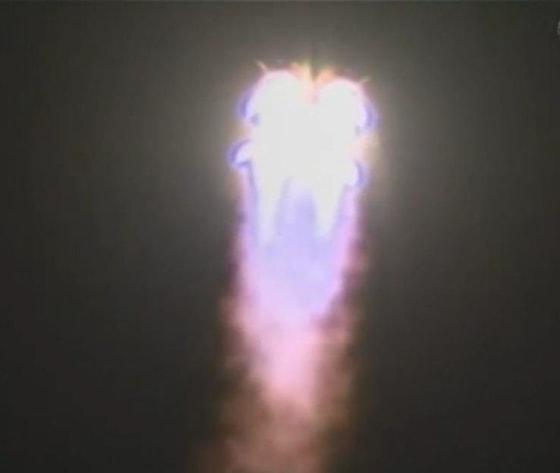A robotic Russian spacecraft filled with supplies for the six crew members on the International Space Station made an express delivery to the orbiting outpost on Wednesday.
The Progress 56 craft was launched atop a Russian-built Soyuz rocket from the Baikonur Cosmodrome in Kazakhstan at 5:44 p.m. ET (3:44 a.m. local time Thursday). It hooked up with the space station's Pirs docking compartment just after 11:30 p.m. ET.
Sign up for Science news delivered to your inbox
The Progress was loaded with about 5,700 pounds (2,587 kilograms) of food, water, propellant and other supplies for the station's Expedition 40 crew.
Historically, Progress ships have taken about two days to arrive at the station. Since 2012, however, the Russian crafts have been flying to the science laboratory in six hours or less. Astronauts and cosmonauts have also started taking these quick, four-orbit flights aboard the Soyuz capsules that deliver new crew members to the station.
A different Progress craft, dubbed Progress 55, left the space station on Monday to make room for the new cargo ship. Progress 55 is now flying a safe distance away from the orbiting outpost. It will perform a series of engineering tests before it intentionally burns up over the Pacific Ocean on July 31, according to NASA.
The space station currently plays host to a crew of six. NASA astronauts Steve Swanson and Reid Wiseman, European Space Agency astronaut Alexander Gerst and Russian cosmonauts Max Suraev, Alexander Skvortsov and Oleg Artemyev make up the Expedition 40 crew.
— Miriam Kramer, Space.com
This is a condensed and updated version of a report from Space.com. Read the full report. Follow Miriam Kramer on Twitterand Google+. Follow Space.com on Twitter, Facebook and Google+.
